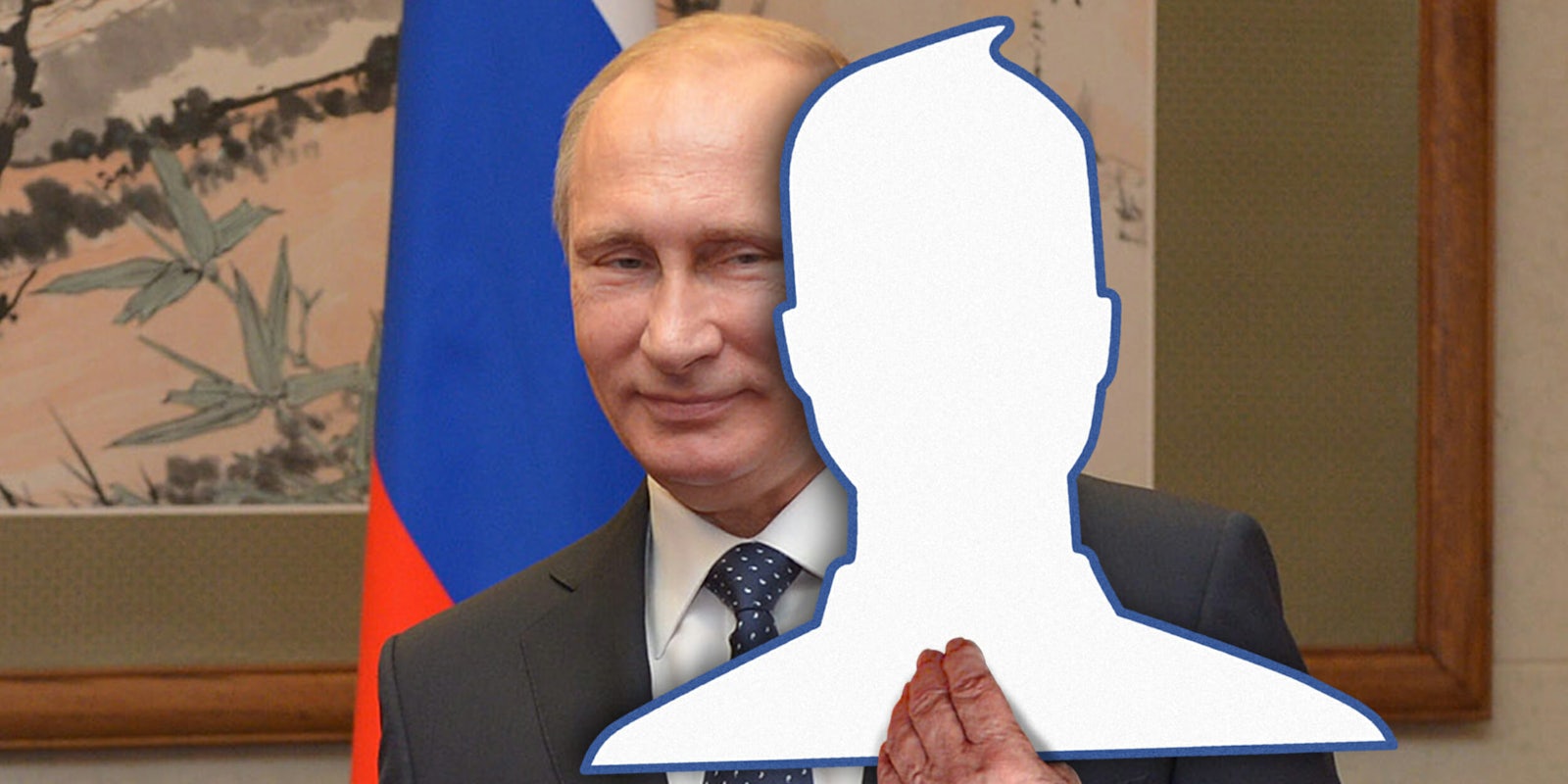Facebook said on Wednesday that it will allow users to see which ads or pages they interacted with that were created by Russian actors to sow discord ahead of the 2016 election. [Update: That tool is now live.]
In a blog post, Facebook said it will “soon” be creating a portal that will allow people to see Facebook pages or Instagram accounts that were part of the Internet Research Agency, a Russian “troll farm,” that were used as part of its election interference efforts. The company said in September it sold $100,000 worth of ads to the Internet Research Agency beginning in the summer of 2015.
“It is important that people understand how foreign actors tried to sow division and mistrust using Facebook before and after the 2016 U.S. election,” the company wrote. “That’s why as we have discovered information, we have continually come forward to share it publicly and have provided it to congressional investigators. And it’s also why we’re building the tool we are announcing today.”
The tool will be able to be accessed through the social media giant’s “help center.” The Russia-linked pages, which could have been liked or followed by Facebook users, will cover posts published between January 2015 and August 2016. Facebook did not announce a specific date for the implementation of the tool.
Last month, lawmakers released a sample of the ads used by Russia to sow discord ahead of the election, including metadata they used to target specific audiences in the United States using Facebook.
The ads came from pages called “american.veterans,” “Army of Jesus,” and “LGBT United,” among others. The data showed just how far Russian actors went to target specific Americans with certain interests, likes, and connections on the social media platform.
Some of the ads reached 100,000 people, according to the data, and Facebook said overall 126 million of its users were exposed to content generated in an effort to interfere with voters ahead of the election.
Earlier this month, President Donald Trump called former intelligence officials “political hacks” when asked whether he believed Russian President Vladimir Putin‘s assertion that Russia did not meddle in the 2016 election.



Update 3:38pm CT, Dec. 22: Facebook launched its tool Friday that allows people to see the Russian-influenced ads and pages they have interacted with. Click here to see if you were affected.